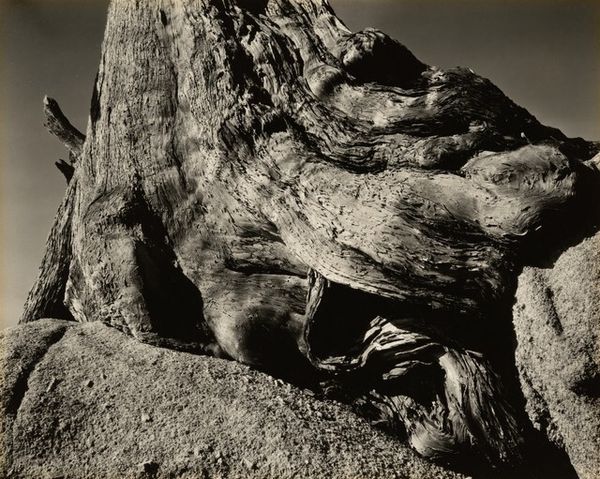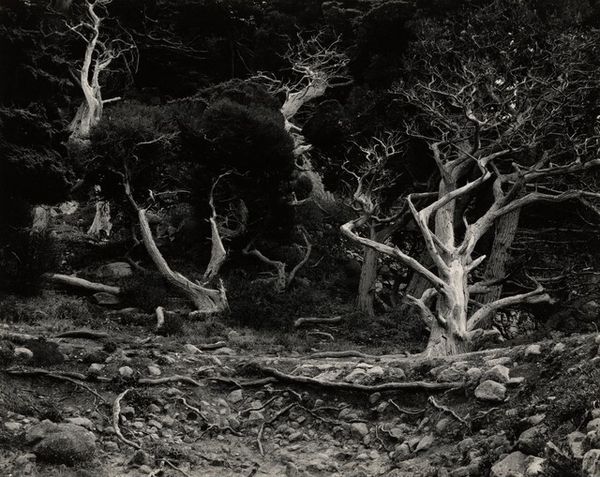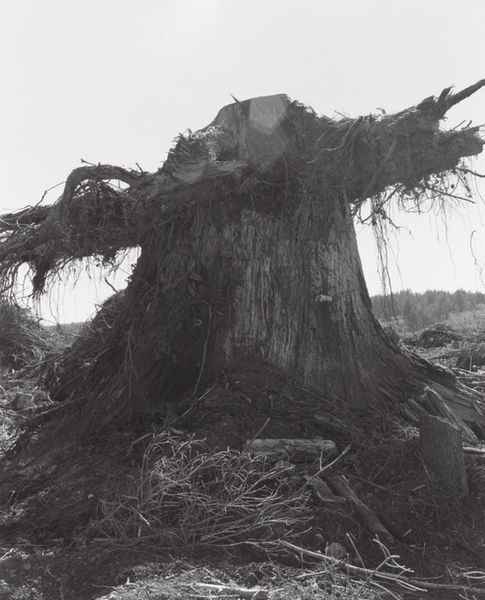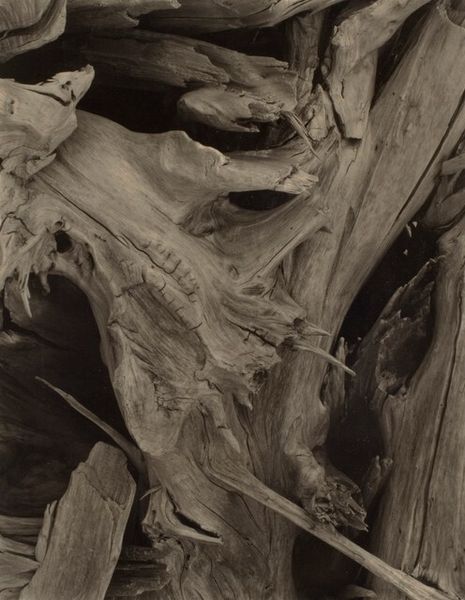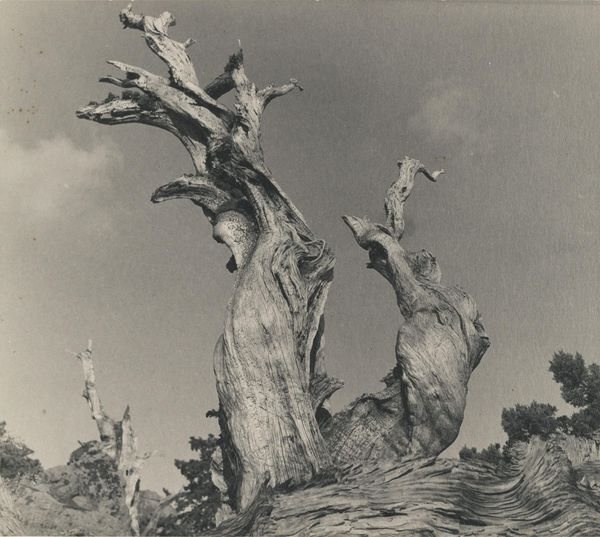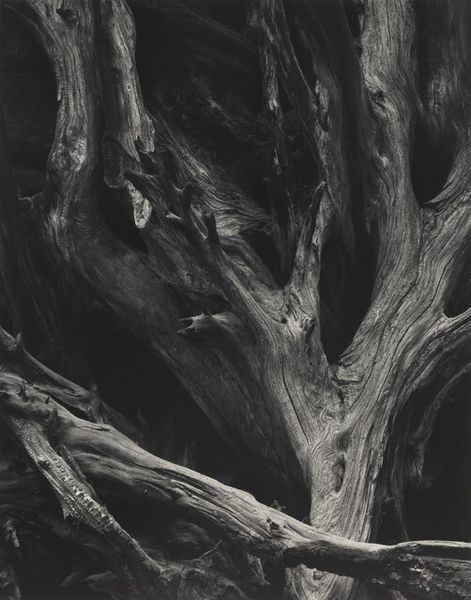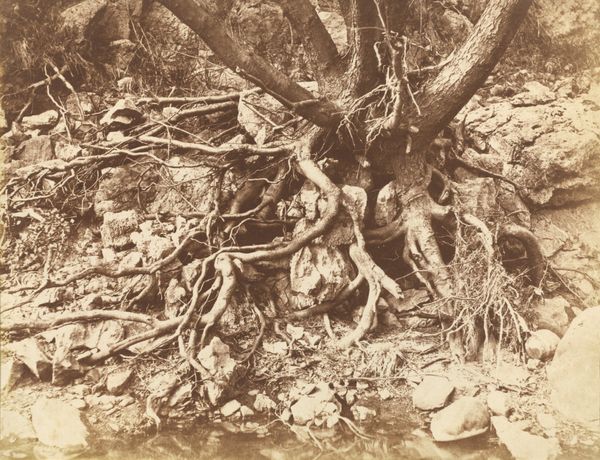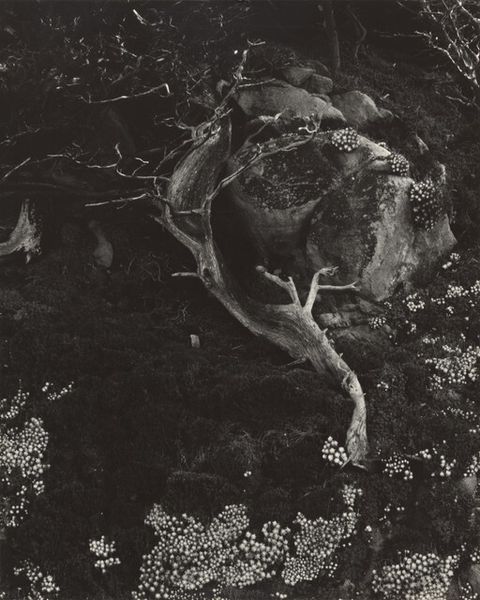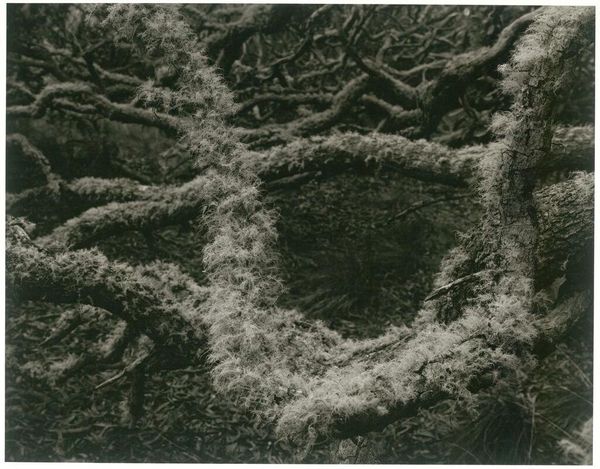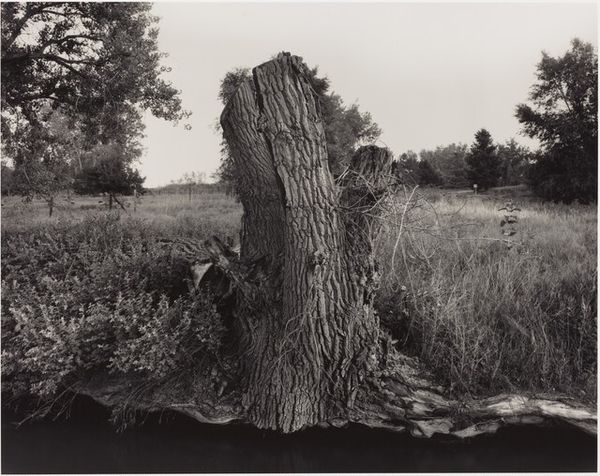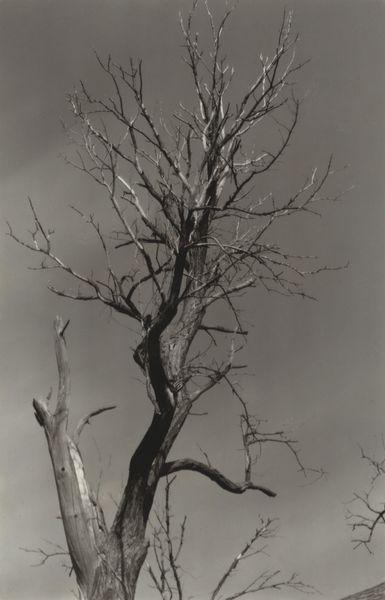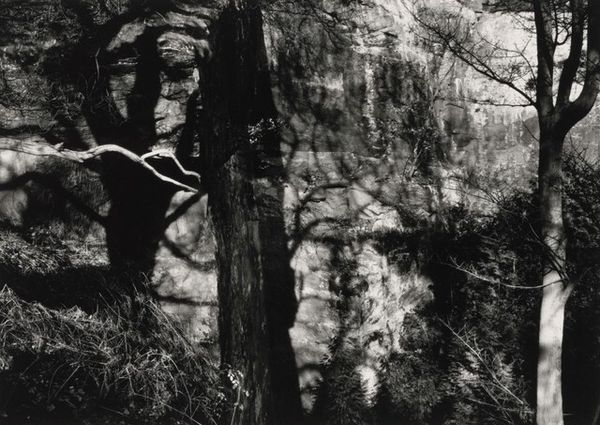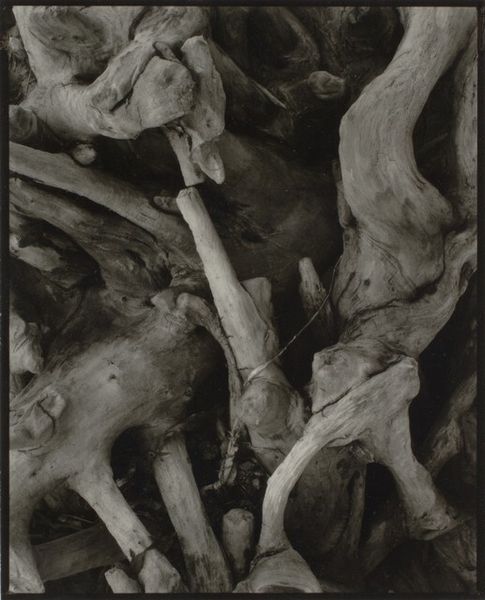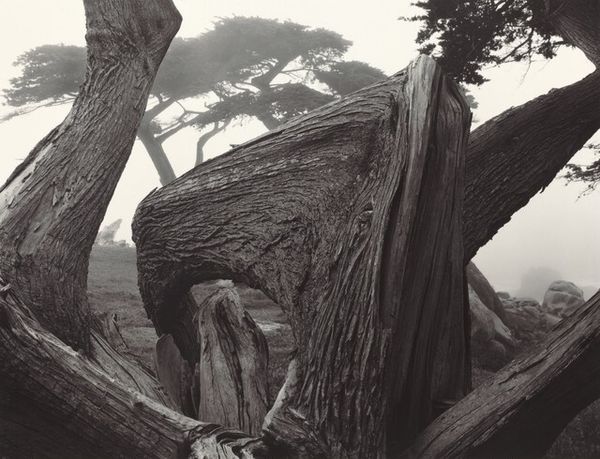
Willows Along Cache la Poudre River, Colorado Possibly 1997 - 2009
0:00
0:00
photography, gelatin-silver-print
#
still-life-photography
#
landscape
#
dark monochromatic
#
photography
#
gelatin-silver-print
#
monochrome photography
#
monochrome
#
natural form
#
realism
#
monochrome
Dimensions: image: 35 × 44.4 cm (13 3/4 × 17 1/2 in.) sheet: 40.4 × 50.4 cm (15 7/8 × 19 13/16 in.)
Copyright: National Gallery of Art: CC0 1.0
Editor: This is "Willows Along Cache la Poudre River, Colorado," a photograph, a gelatin-silver print, by William Wylie, possibly from between 1997 and 2009. The monochrome lends it a starkness, almost a rawness, doesn't it? What do you see in this piece, something beyond just a tree and river? Curator: Well, for me, it’s about the weight of time. You’ve got this ancient willow, clinging to the earth, its roots like veins exposed, vulnerable. And the water...it’s not still, is it? It's a river, constantly moving, carrying away debris, memories, all the while reflecting the light. There’s a certain tension, wouldn't you say, between the solidity of the tree and the fluidity of the water? Editor: Definitely, that tension creates a stillness. It feels almost meditative. Curator: Meditative, yes, precisely! It asks us to contemplate our own place in that dance between permanence and impermanence. What I adore most is Wylie’s keen eye for details - how the light creates dramatic patterns on the bark, for instance, or how the exposed roots seem to mimic the tangled branches above. Editor: I like how the darkness seems to envelope the image. You think that’s just for effect? Curator: I'm not so sure about *just* for effect, but that's not to say it is accidental either! You know, I often find darkness in photography so compelling because, maybe counterintuitively, it draws our attention toward details we might have otherwise overlooked. Editor: It's true. Thinking about that tension now, and the meditative stillness of the photo, that helps me see this landscape differently. More personally. Curator: Exactly. And isn’t that what art should do? Shift our perceptions, reveal new depths within the familiar. It reminds us to slow down and look, *really* look, at the world around us.
Comments
No comments
Be the first to comment and join the conversation on the ultimate creative platform.
